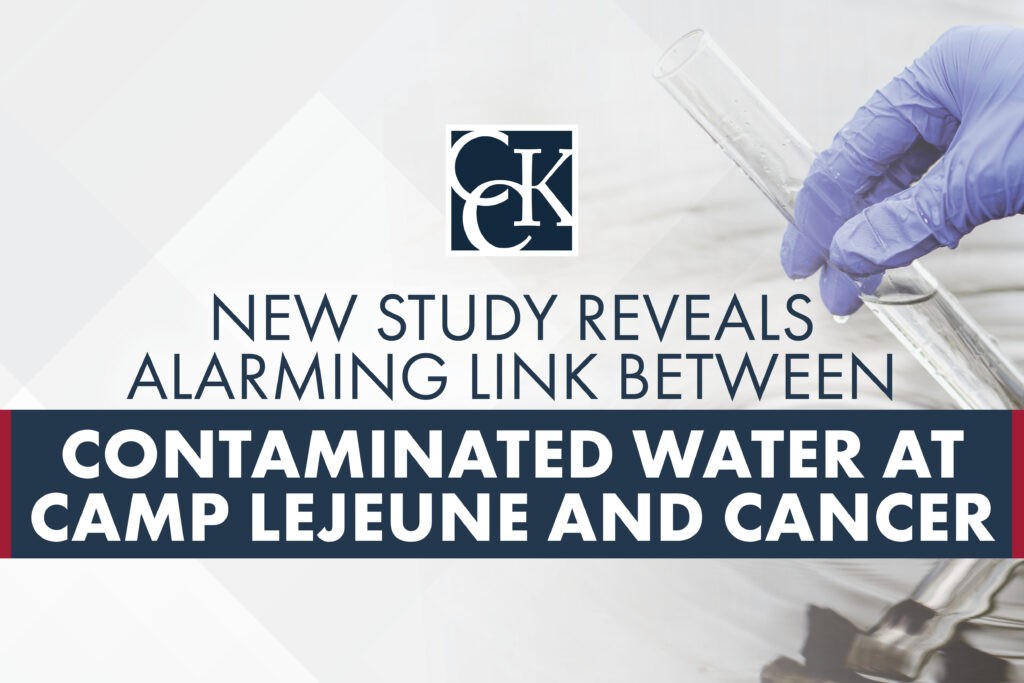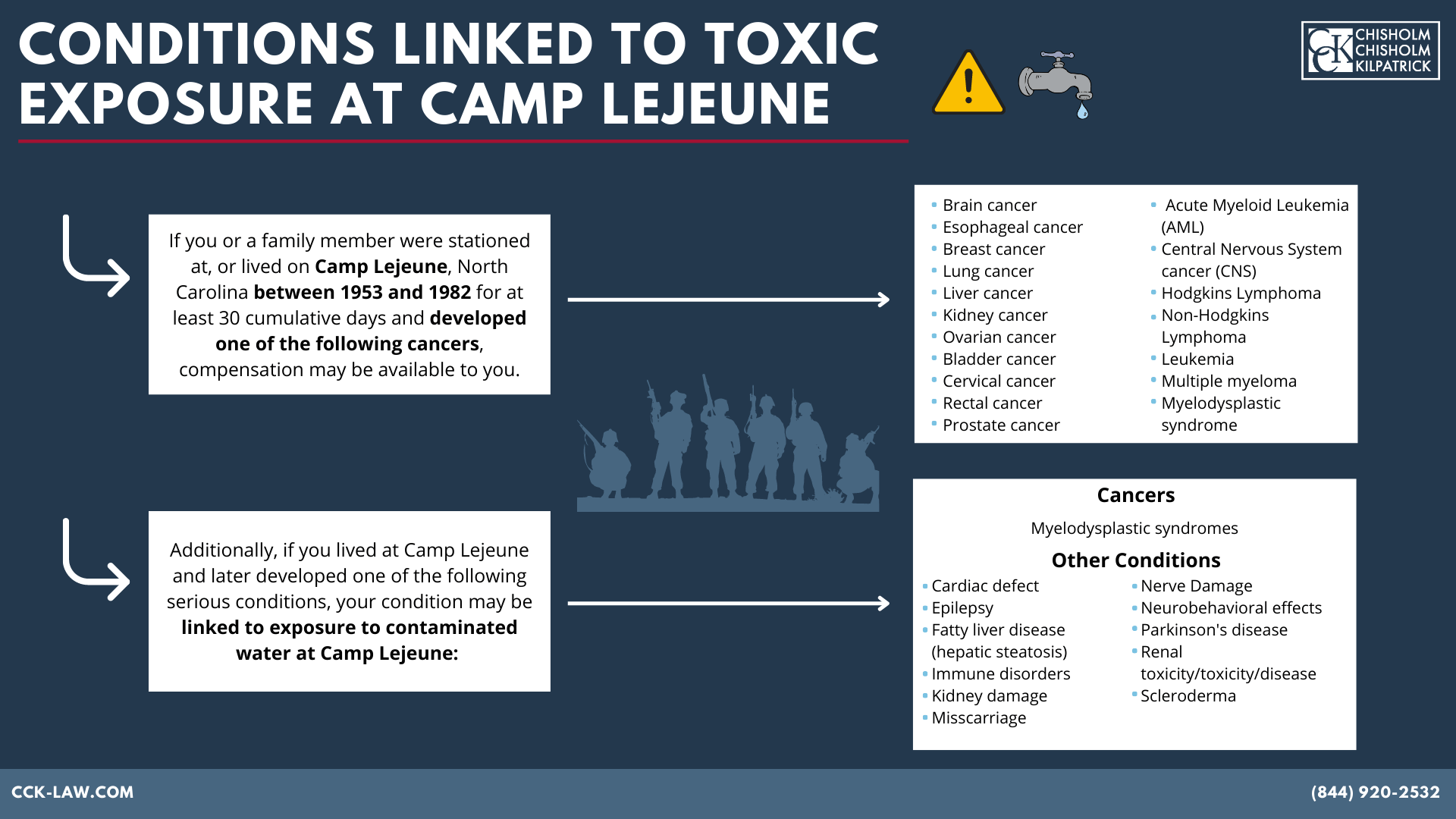New Study Reveals Alarming Link Between Contaminated Water at Camp Lejeune and Cancer

CCK Law: Our Vital Role in Veterans Law
A new study released on Wednesday, January 31, 2024, has linked a number of new cancers to contaminated water at Camp Lejeune. This new study compared service members and civilians who lived and worked at Camp Lejeune to a similar group at Camp Pendleton in California.
Toxic Exposure at Camp Lejeune
Water contamination at Camp Lejeune existed for decades and exposed thousands of people to serious health risks. Specifically, from 1953 to 1987, everyone living or working at United States Marine Corps Base Camp Lejeune in North Carolina was exposed to a variety of toxins in the water.
Service members living on the base at the time, along with their families, were unknowingly drinking contaminated water, as well as cooking with it, bathing in it, and washing their clothes in it.
New Research into Camp Lejeune Water Finds Increased Cancer Risk
The US Centers for Disease Control and Prevention launched a new research initiative in 2015, focused on the risk of developing cancer more than a decade after serving at Camp Lejeune.
The study revealed alarming statistics, finding that military personnel who served there had at least a 20 percent greater risk of developing certain cancers compared to those who served at Camp Pendleton in California.
Moving for the Release of Research Findings
The information from the study became the subject of a court fight when attorneys representing claimants allegedly harmed by Camp Lejeune’s water asked a federal judge to compel the government to release the findings of the study.
The judges overseeing the case declined to force the release of the study, and the plaintiffs dropped their appeal when the Agency for Toxic Substance and Disease Registry division of the CDC said that the findings would be released soon thereafter. The study was finally released on Wednesday, January 31, 2024.
What Were the Findings of the New Research?
Officially, the Department of Justice recognizes nine health conditions as related to the contaminated water at Camp Lejeune. Those conditions are:
- Kidney cancer;
- Liver cancer;
- Non-Hodgkin lymphoma;
- Leukemias;
- Bladder cancer;
- Multiple myeloma;
- Parkinson’s disease;
- Kidney disease; and
- Systemic sclerosis.
This new study has now identified several other cancers that had not previously been linked to the contamination.
Ultimately, the new study revealed that military personnel at Camp Lejeune were at a higher risk of developing:
- All myeloid cancers;
- Myelodysplastic and myeloproliferative syndromes;
- Esophagus cancer;
- Breast cancer;
- Thyroid cancer;
- Soft tissue cancer;
- Marginal B-Cell lymphoma; and
- Some types of lung cancer.
The study also indicated that the risks were different for civilians. Those who worked or lived at Camp Lejeune had at least a 20 percent higher risk of all myeloid cancers; certain kinds of lung cancer; and female ductal breast cancer.
Additionally, there was an elevated trend for oral cancers; thyroid cancer; acute myelogenous leukemia; blood disorders; B-cell lymphomas; and a specific kind of bladder cancer called “nonpapillary transitional cell bladder carcinoma.”
What Do These Findings Mean for Veterans?
In terms of what this means for the veterans and civilians affected by the toxic water at Camp Lejeune, the study could potentially lead to an expanded list of conditions that claimants can file for to receive compensation.
Currently, the PACT Act allows those harmed by contaminated water at Camp Lejeune to file claims for compensation until August 10, 2024. It is important to note that there is no deadline for filing for VA compensation due to disabilities resulting from exposure to toxic water at Camp Lejeune.
Ultimately, this groundbreaking study serves as a crucial piece of evidence linking contaminated water at Camp Lejeune to an even wider range of cancers than were previously understood.
This new data could also impact VA’s presumptive policy for veterans exposed to contaminated water at Camp Lejeune by expanding the list of conditions eligible for presumptive service connection.
File a Claim for Compensation Today
If you need legal assistance with your claim for compensation related to Camp Lejeune’s toxic water, we may be able to help. Reach out to CCK today to see if we may be able to help you.
About the Author
Share this Post

